HEOR Insights: September 24, 2024 Edition
September 17, 2024
Jill Biden announces $500 million for women’s health initiatives
This article covers the significant announcement made by Jill Biden, revealing a $500 million fund aimed at improving healthcare services for women, especially in underserved communities. The initiative focuses on maternal health, preventive care, and the development of healthcare infrastructure in low-resource areas. The goal is to ensure better access to healthcare services for women, addressing long-standing disparities in healthcare outcomes.
In addition to healthcare services, the initiative also includes workforce development programs aimed at increasing the number of healthcare professionals serving in these regions.
Key Takeaways:
- • Focus on women’s health.
- • Support for underserved communities.
- • Expansion of maternal health initiatives.
Montana lawmakers hear conflicting arguments on Medicaid expansion
Montana lawmakers are engaged in a heated debate over the proposed expansion of Medicaid services. Supporters argue that expanding Medicaid would provide crucial healthcare access to rural populations, improving health outcomes and reducing long-term costs. Opponents, however, raise concerns about the financial strain such an expansion could place on the state’s budget and its impact on other public services.
The article presents arguments from both sides, with testimony from healthcare providers, economic experts, and local residents, offering a comprehensive view of the potential benefits and challenges.
Key Takeaways:
- • Medicaid’s role in rural healthcare.
- • Economic implications of expanding Medicaid.
- • Key arguments from stakeholders.
Providence Health Services offers seniors fall prevention programs
As fall-related injuries become a leading cause of hospitalization among seniors, Providence Health Services has launched a comprehensive fall prevention program. This initiative includes balance training, physical therapy, and home safety assessments to reduce the risk of falls and improve the quality of life for elderly patients.
The program has already shown positive outcomes in pilot studies, with participants reporting fewer falls and increased confidence in their daily activities. It serves as a model for other healthcare providers looking to implement similar preventive measures.
Key Takeaways:
- • Focus on elderly care and prevention.
- • A proactive approach to reducing falls.
- • Community-based health education.
State Officials Scrutinize Ballad Health’s Service Changes
Recent service changes by Ballad Health, particularly in rural areas, have drawn the attention of state officials. The reduction of specialized services has raised concerns over patient access, especially for critical healthcare services. Ballad Health defends the changes as necessary for cost-efficiency, but officials are closely monitoring the situation to ensure that patients do not experience diminished care quality.
The scrutiny comes amid broader discussions about how healthcare systems in rural areas can balance financial sustainability with the need to provide comprehensive care.
Key Takeaways:
- • Concerns over healthcare access in rural areas.
- • Balancing cost-efficiency and patient outcomes.
- • State-led evaluations and future decisions.
Joint Subcommittee on Environment, Innovation, and Healthcare Transformation
The Joint Subcommittee has released a report focusing on the intersection of healthcare innovation and environmental sustainability. The findings underscore the importance of data-driven healthcare practices that prioritize both patient outcomes and sustainability. The report explores how healthcare systems can implement green technologies and processes to reduce their carbon footprint while maintaining high standards of patient care.
The subcommittee also identifies key areas where innovation, such as the use of renewable energy and waste reduction strategies, can transform healthcare delivery in the future.
Key Takeaways:
- • Importance of sustainable healthcare practices.
- • Innovation through data and outcomes research.
- • Insights into future healthcare transformation.
Bio-based coatings: Maintaining high-performance standards in medical devices
Bio-based coatings are emerging as a game-changer in the medical device industry, offering both performance and environmental benefits. These coatings, derived from renewable resources, are designed to enhance the durability and functionality of medical devices while reducing their environmental impact. The article explores recent advancements in bio-based technology, focusing on how these coatings improve device longevity and patient safety.
As healthcare systems move toward more sustainable practices, bio-based coatings are gaining attention for their ability to meet both clinical and environmental standards.
Key Takeaways:
- • Innovation in medical device technology.
- • Cost-effectiveness and sustainability benefits.
- • Improving the lifecycle of medical devices.
Q&A: How Cebranopadol Could Help Address Gaps in Pain Management
Cebranopadol is a novel drug that offers a promising alternative to traditional pain management therapies, particularly opioids. In this Q&A, experts discuss how cebranopadol works through a unique mechanism that provides effective pain relief without the high risk of dependency commonly associated with opioids. The drug is especially relevant for patients with chronic pain conditions who have exhausted other treatment options.
As the opioid crisis continues, cebranopadol could represent a breakthrough in how healthcare professionals approach pain management, balancing efficacy and safety.
Key Takeaways:
- • Innovative approaches to pain management.
- • Reducing risks associated with chronic opioid use.
- • Future potential in treating pain.
Let Nautica Health guide your organization toward better outcomes with evidence-based insights. Visit www.nauticahealth.com for more information.
Disclaimer: The information contained in this newsletter is provided for informational and educational purposes only. While Nautica Health has made every effort to ensure the accuracy and reliability of the content presented, the reader is advised to verify the information directly from the original source. In the event of any discrepancies, the information published on the source webpage shall take precedence, and Nautica Health shall not be held liable for any errors, omissions, or inaccuracies. By reading this newsletter, you agree that Nautica Health shall not be responsible for any decisions or actions taken based on the information provided herein. We encourage readers to bring any discrepancies to our attention so that we may promptly correct or update the content as necessary.
